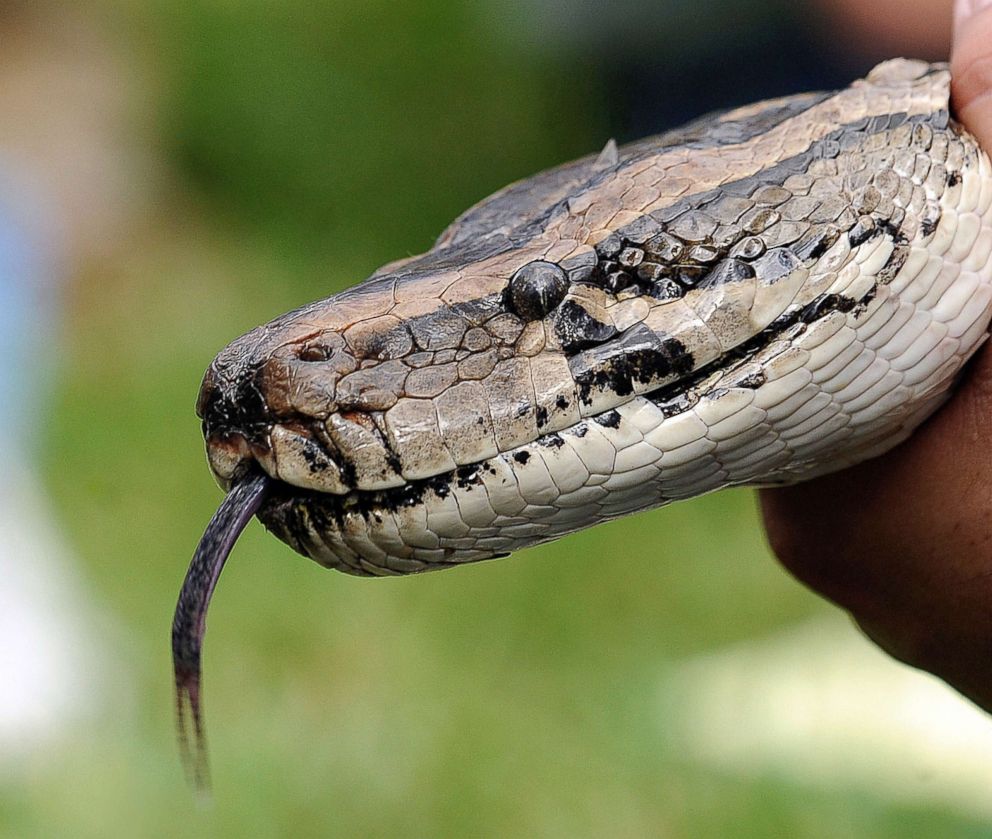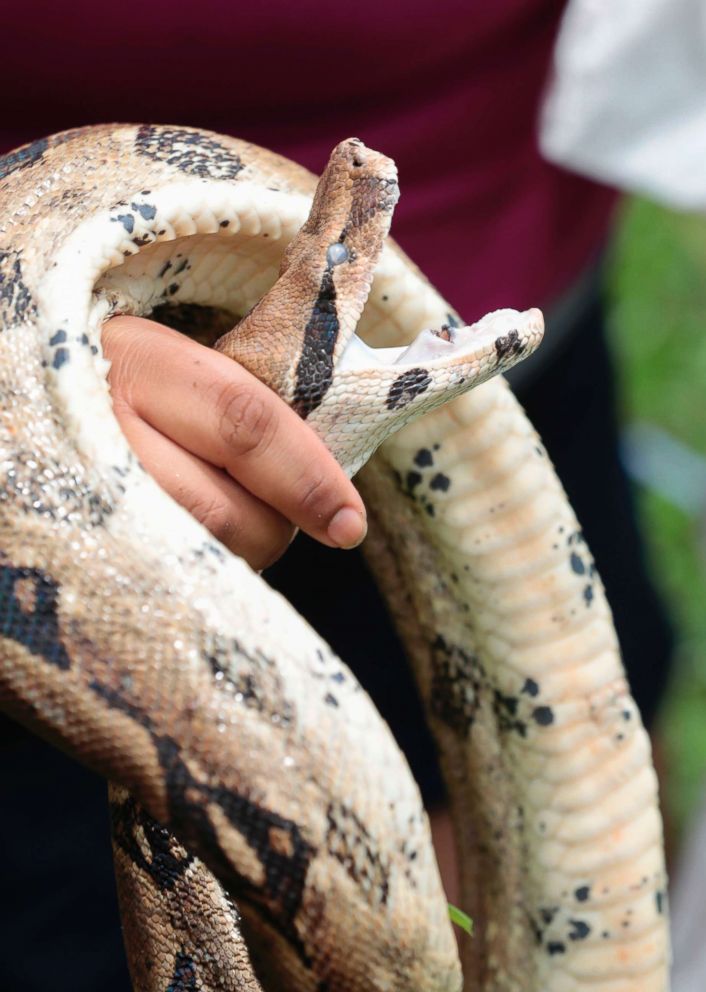Hybrid snakes with the ability to live in various environments discovered in Florida: Study
The snakes were discovered among the invasive python population in Florida.
While examining the invasive python population in Florida, researchers stumbled across the unexpected: a kind of hybrid super snake.
A small number of the invasive pythons were found to be a crossbreed between two separate species, the Burmese and Indian pythons, and what's more is that this hybrid snake has the potential to thrive in new environments, according to a new study conducted by scientists with the United States Geological Survey (USGS).
“We found that out of 400 Burmese pythons investigated, 13 had mitochondrial genetic signatures from the Indian python, a separate species,” Margaret Hunter, a research geneticist at USGS who led the study, told ABC News.
Researchers were analyzing the tail tissue from roughly 400 Burmese pythons captured between 2001 and 2012 across a wide area, from southwest Florida to the Everglades, when they made the discovery of the 13 hybrid snakes.
"The new information in this study will help scientists and wildlife managers better understand these invasive predators’ capacity to adapt to new environments," Hunter said of the hybrid pythons they discovered.
As Burmese pythons mostly live in the wetlands and Indian pythons mostly live on higher ground, the researchers were faced with the possibility that these hybrid snakes could have the ability to live in various types of environments.

“[The] hybrid snakes could potentially have the capability to adapt more readily to the novel environment in the U.S. to increase their population size or the habitats they live in," Hunter said.
“Hybrid vigor can potentially lead to a better ability to adapt to environmental stresses and changes," Hunter said in the statement. "In an invasive population like the Burmese pythons in South Florida, this could result in a broader or more rapid distribution."
Scientists have been investigating Burmese python populations across Florida to identify whether any groups are genetically distinct, and to help management and conservation efforts.
“Overall, the most concerning fact is that the Burmese python population is large and likely growing and that it is detrimental to the native animal populations,” said Hunter.
She added that researchers are also trying to better understand how and when the snakes first invaded.
“When invasive plants and animals are released," Hunter said, "we don't always know exactly what species has been released and subsequently what their impact will be in the new environment."

This report was featured in Friday's edition of ABC News' daily news podcast "Start Here."
"Start Here" is a daily ABC News podcast hosted by Brad Mielke featuring original reporting on stories that are driving the national conversation. Listen for FREE on the ABC News app, Apple Podcasts, TuneIn, Spotify, Stitcher, Google Play Music, iHeartRadio -- or ask Alexa: "Play 'Start Here.'"
Follow @StartHereABC on social for exclusive content, show updates and more: Twitter, Facebook, Instagram.




